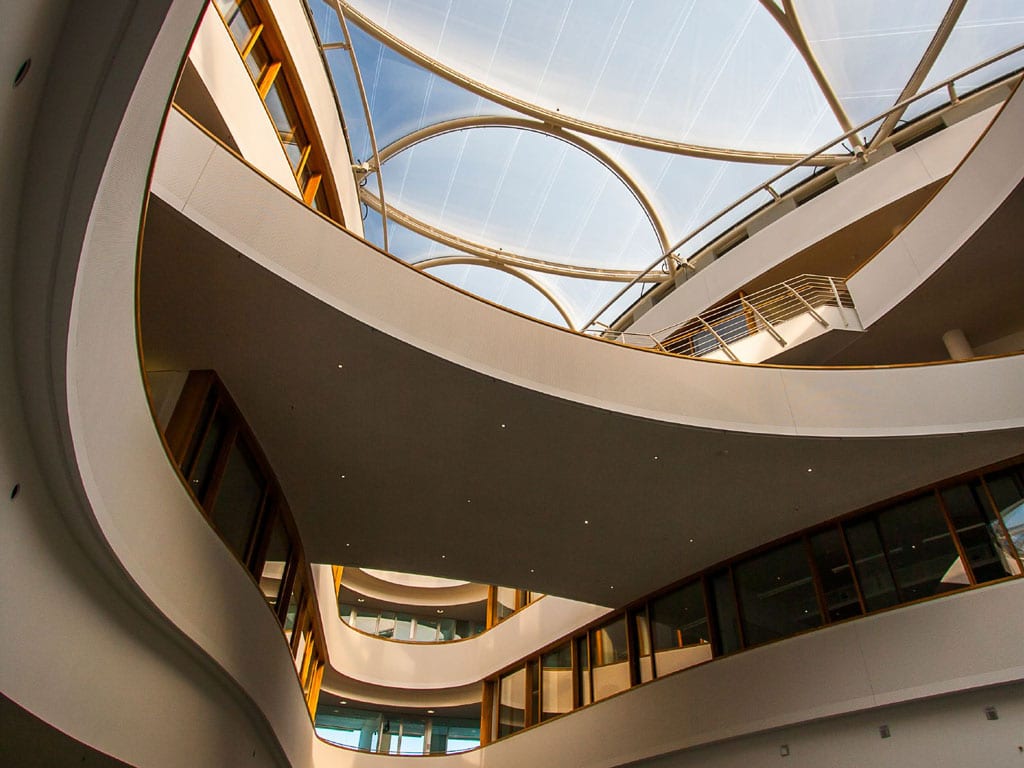Transparent foil cushions cover the center of the CFEL building, whose rooms invite exchange and collaboration. With over 200 publications every year, researchers at CFEL make valuable contributions to a wide range of research questions. The quality and significance of this work is often so high that it is published in the most important scientific journals. As a result, the CFEL competence center attracts a great deal of international attention from the scientific community.
People with different professions all work here under one roof, which allows a view of the Hamburg sky from the inside. Experts, specialists, support staff and students from the research center DESY, the University of Hamburg and the Max Planck Institute for the Structure and Dynamics of Matter make the CFEL a lively place.
Cooperation as a concept for success in the Science City Hamburg Bahrenfeld
The CFEL was founded to make targeted use of the opportunities offered by the research campus. For example, to make optimum use of the radiation sources at DESY and European XFEL. Researchers from many different disciplines use them to observe ultrafast processes in the nanocosmos with various research tools in theory and practice.
At the same time, they are further developing these tools and thus making a fundamental contribution to observing and analyzing the dynamic processes and structural changes of atoms, molecules, solids, plasmas and biological systems in real time. The aim is to create new fundamental knowledge.
A deeper understanding of the processes and building blocks of our world is valuable for science - but also for society. For example, research findings lead to the development of future-oriented materials or medicines. New fundamental knowledge also enables innovative developments in the field of information technology or energy technology.
Partner in CFEL
- Deutsches Elektronen-Synchrotron DESY
- Max Planck Institute for the Structure and Dynamics of Matter (MPSD)
- Universität Hamburg (UHH)
Contact us

© CFEL
Dr. Ralf Koehn
Research Coordinator Center for Free-Electron Laser Science
© CFEL

